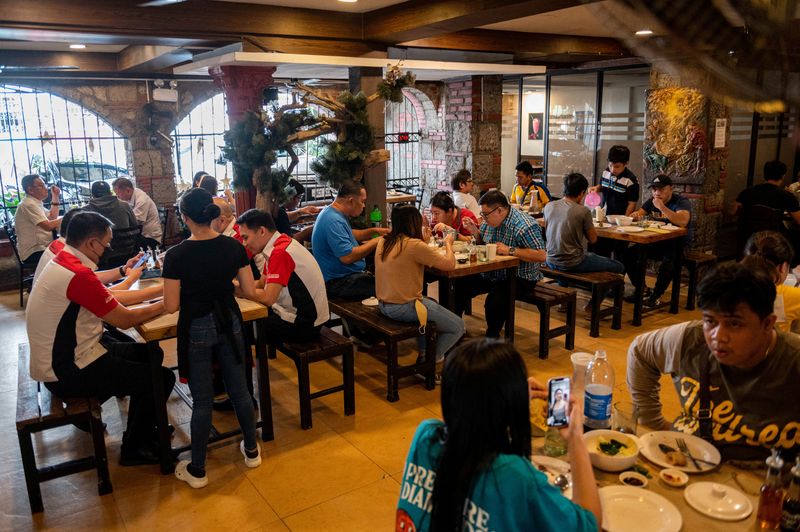Select Language

By Neil Jerome Morales and Mikhail Flores
MANILA (Reuters) - Philippine annual inflation sped up for the first time in five months in February because of faster increases in food and transport costs, likely giving the central bank little reason to consider lowering interest rates.
The consumer price index (CPI) rose 3.4% in February from a year earlier, the statistics agency said on Tuesday, which was above the previous month's 2.8% and the market forecast of 3.1%, but still within the central bank's 2% to 4% target for the year.
But the central bank said inflation could overshoot its target range from the second quarter because of the impact of the El Nino weather phenomenon on farm production and as prior inflation was slower.
"The risks to the inflation outlook have receded but remain tilted toward the upside," the Bangko Sentral ng Pilipinas said in a statement.
One of the main culprits behind the February uptick was rising prices for rice. The inflation rate for the staple accelerated to 23.7% from last year, the fastest in 15 years, because of elevated rice prices in the world market and the effects of lower prior price increases.
Core inflation, which strips out volatile food and energy items in the consumer basket, eased to 3.6% versus the previous month's 3.8%.
The central bank, which last month kept its benchmark rate steady at 6.50% for a third straight meeting, said it "deems it appropriate to keep monetary policy settings unchanged in the near term." It meets next to review policy on April 4.
The central bank would likely keep rates at current levels for an extended period, ING Economist Nicholas Mapa said in a post on social media platform X.

